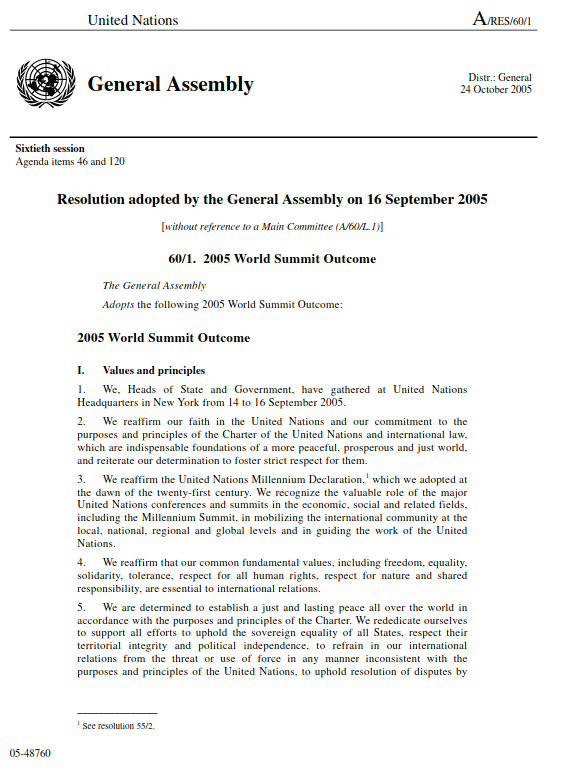2005 Resolution on the World Summit outcome
Analysis of precedential value
This declaration is the product of the World Summit in September 2005, which was attended by representatives from roughly 150 UN Member States. The UN General Assembly adopted this resolution without a general vote the following month. The General Assembly is the preeminent governing body of the UN system and consists of all 193 UN Member States.
Used as precedent
access to health products
“To provide, with the aim of an AIDS-, malaria- and tuberculosis-free generation in Africa, assistance for prevention and care and to come as close as possible to achieving the goal of universal access by 2010 to HIV/AIDS treatment in African countries, to encourage pharmaceutical companies to make drugs, including antiretroviral drugs, affordable and accessible in Africa and to ensure increased bilateral and multilateral assistance, where possible on a grant basis, to combat malaria, tuberculosis and other infectious diseases in Africa through the strengthening of health systems.” (paragraph 68(i))
key and vulnerable populations
“We will put into place policies to ensure adequate investment in a sustainable manner in health, clean water and sanitation, housing and education and in the provision of public goods and social safety nets to protect vulnerable and disadvantaged sectors of society.” (paragraph 25(b))
“We recognize the need to pay special attention to the human rights of women and children and undertake to advance them in every possible way, including by bringing gender and child-protection perspectives into the human rights agenda.” (paragraph 128)
positive legal determinants
“Achieving universal access to reproductive health by 2015, as set out at the International Conference on Population and Development, integrating this goal in strategies to attain the internationally agreed development goals, including those contained in the Millennium Declaration, aimed at reducing maternal mortality, improving maternal health, reducing child mortality, promoting gender equality, combating HIV/AIDS and eradicating poverty.” (paragraph 57 (g))
